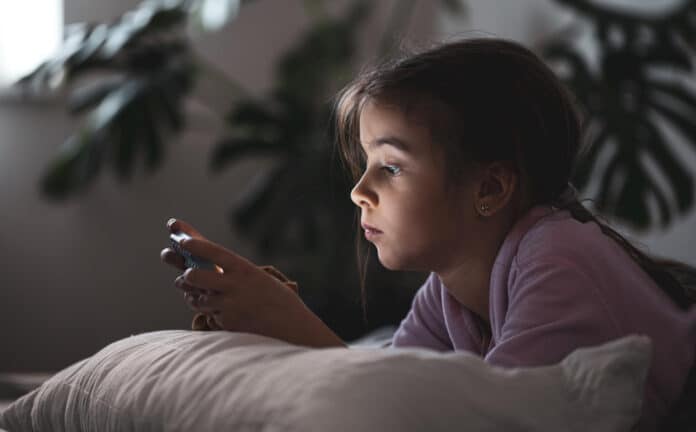Tohoku University and Hamamatsu University School of Medicine researchers discovered that the amount of screen time spent by one-year-olds is associated with developmental delays.
The new study examined 7,097 mother-child pairs from the Tohoku Medical Megabank Project Birth and Three-Generation Cohort study. Children were nearly equally divided between boys (51.8%) and girls (48.2%). Parental surveys were used to measure their screen time exposure, which included seeing televisions, video game displays, tablets, mobile phones, and other electronic devices with visual displays.
Their screen time exposure was classified as less than one hour (48.5%), one to less than two hours (29.5%), two to less than four hours (17.9%), and four or more hours (4.1%). At two and four years old, the children’s development was assessed in five domains: communication, gross motor, fine motor, problem-solving, and personal and social skills. The five areas of communication, gross motor, fine motor, problem-solving, and personal and social abilities were used to evaluate the children’s development at two and four years old.
Increased screen time at age one was related to developmental delays in all domains for children at age two, except for gross motor abilities. In contrast, at age four, it was only associated with communication and problem-solving skills delays.
Tohoku University epidemiologist Taku Obara, corresponding author of the research article, said,
“The differing levels of developmental delays in the domains, and the absence of any detected delay in some of them at each stage of life examined, suggests that the domains should be considered separately in future discussions of the association between screen time and child development.”
The World Health Organization and the American Academy of Pediatrics recently published information indicating that just a minority of children are fulfilling guidelines for minimizing screen time exposure, which prompted the researchers to conduct this study. The policies ensured that children get enough exercise and social interaction.
The fast growth of digital gadgets and the COVID-19 pandemic’s influence has significantly increased screen time for children and adolescents. However, This research does not simply recommend limiting screen usage.
The researcher said, “We use the term ‘delay’ in accordance with previous research, but it is debatable whether this difference in development is a ‘delay’ or not. We want to gain deeper insight into future studies by examining the effects of different types of screen exposure.”
Journal Reference:
- Taku Obara, Ippei Takahashi, et al. Screen Time at Age 1 Year and Communication and Problem-Solving Developmental Delay at 2 and 4 Years. JAMA Pediatrics. DOI: 10.1001/jamapediatrics.2023.3057
